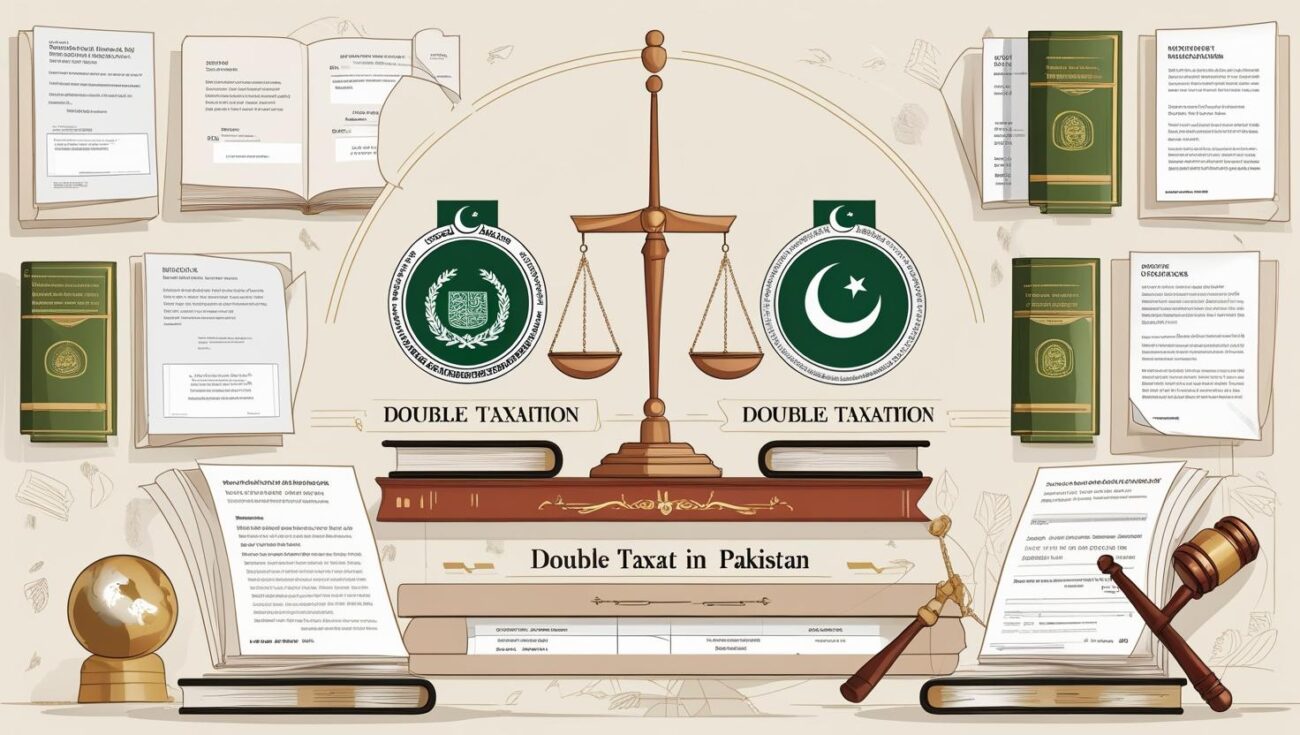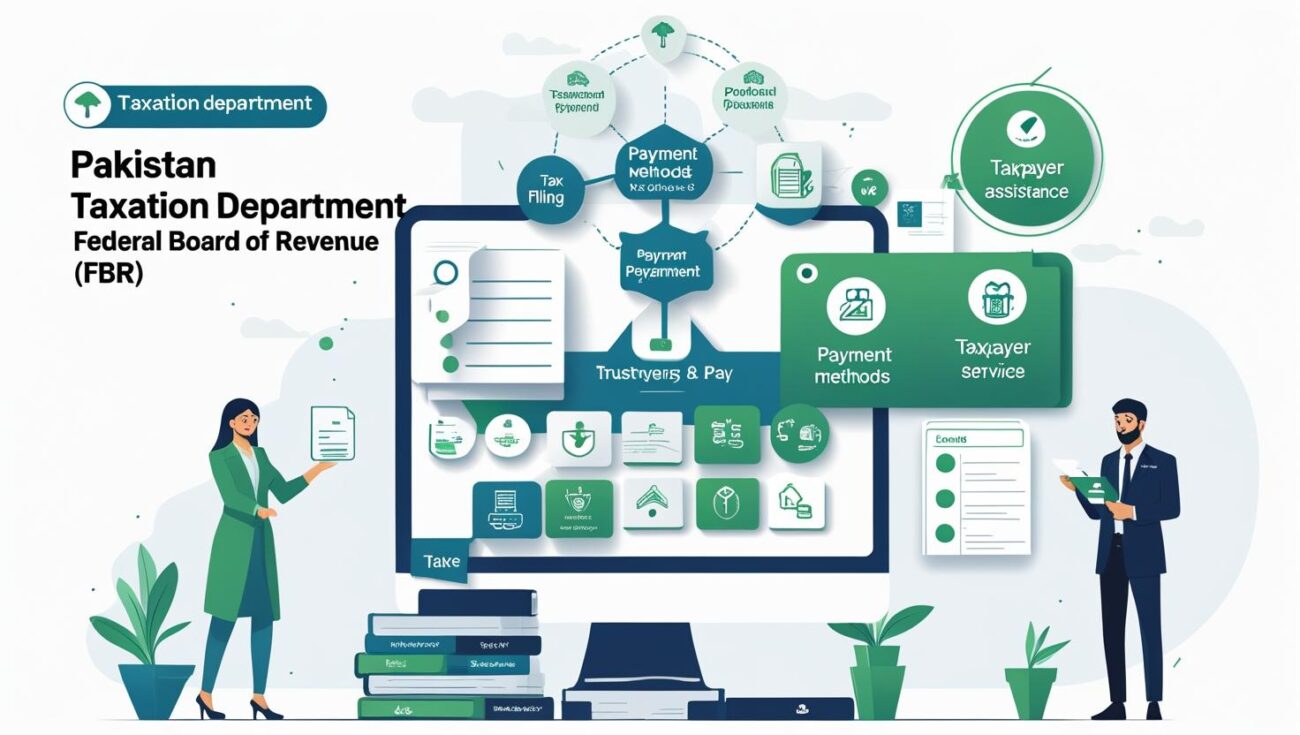Issue of double taxation in Pakistan is a big problem for residents and non-residents engaged in cross-border business activities. The situation that gives rise to the double taxation is due to the taxation of one and the same income in two different countries, which can lead to significant monetary and administrative costs for taxpayers. Countries having international trading tend to get in such cases when people or companies are getting taxed both at the state of residence and at the source state. As a member of the international community and a party to numerous bilateral treaties, Pakistan has dealt with it in the national laws and international instruments.
Double taxation in Pakistan is based on the principle of resolving different types of tax conflicts confining specific legislative provisions, International Comity and judicial constructs. This Article examines the problem of double taxation in Pakistan, its nature, causes and remedies, especially in the context of double taxation agreements, the recommended provisions of the treaty and the case law.
Understanding Double Taxation in Pakistan
The incidence of double taxation arises if a person or a company is taxed on the same income in Pakistan as well as in another country. Such a situation arises most frequently in international business situations, where the Pakistani company earns income outside Pakistan, or the foreign company is operating in Pakistan. Foreigners working in Pakistan and Pakistanis working overseas are similarly exposed to double taxation hazards.
After petroleum products, taxes can also be levied on the production and consumption of electrical, water and gas. Thus, Pakistani-source income is subject to tax in Pakistan, irrespective of the residence of the taxpayer. But Pakistani tax also apply residence base taxation in some cases so it happens with other other countries tax law collides. Such overlap necessarily raises the spectre of double taxation unless steps are adopted to prevent or mitigate it.
Measures Taken in the Country to Prevent Double Taxation
Double taxation issue in Pakistan is conciliated through few sections in local tax laws known as the Income Tax Ordinance, 2001. There is a Foreign Credit Available to Claim a Tax Credit (Clause 103) Section 103 of the ordinance relates the foreign tax written in taxes paid to a foreign government on income that is also taxed in Pakistan. The credit is also limited and there are documentation requirements.
But such domestic relief mechanisms are frequently not effective in the face of foreign tax jurisdictions which have their own sets of rules. Therefore, Pakistan has signed double taxation treaties with numerous countries in an effort to lessen the load of double taxation through joint policy.

Role of Double Taxation Agreements
“Double taxation agreement (DTA) is when two sovereign countries have entered into an agreement in order to avoid a situation where the same income is taxed in both countries.” Pakistan has concluded more than 65 double taxation agreements with various countries such as the UK, the US, China, Germany, Dubai and Saudi Arabia. Such agreements are intended to promote international trade and investment for certainty, Equity and freedom from double taxation.
Withholding tax rates may also be reduced through tax treaties Pakistan has with other countries which dictate special rules for how certain types of incomes (dividends, interest, royalties, business profits, capital gains) are taxed. Typically, the DTA provides for that taxing right to be attributed solely to one country (particularly in the case of a revenue (in this case, a royalty) not effectively connected with a PE) or it restricts the rate of tax that can be imposed by the source country.
E.g. under the Pakistan – UAE DTA profits derived from business is only taxed in country of residence unless business is carried on through a PE in another country. These treaties also place limits on withholding tax rates for dividends and royalties, thereby reducing the tax burden on cross-border payments.
Methods of Eliminating Double Taxation Under Tax Treaties
Most of Pakistan’s double taxation agreements allow for relief via one or both of the following methods:
Exemption Method
In that structure, income taxed in one jurisdiction is not taxed in the other. In this manner, the income is taxed only once, thereby avoiding double taxation.
Tax Credit Method
Under this method, foreign taxes paid are allowed as a credit against home-country tax. In Pakistan, this method is more generally accepted and is specifically included under tax treaties and the Income Tax Ordinance. In this way, the taxpayer can minimize its total tax liability while respecting the legal requirement of both countries.
Key Clauses in Double Taxation Treaties Adopted by Pakistan
Although these treaties vary, there is a standard set of clauses which can be found in most double tax treaties that Pakistan has agreed:
Permanent Establishment (PE): Determines the level of business presence that incurs tax in the host state.
Withholding Tax Provisions: Provides the applicable withholding tax rates for dividends, interest, and royalties.
Non-Discrimination provision: Guarantees taxpayers from within and outside of Georgia are treated the same in like positions for tax purposes.
Mutual Agreement Procedure (MAP): An avenue for resolution of disputes between the tax authorities of the contracting countries.
Information Exchange: Helps in exchanging tax information between the two nations to prevent tax evasion.
These agreements aimed at not only avoiding double taxation in Pakistan but also encourage cooperation and transparency between tax authorities.
Double Taxation Case Laws in Pakistan
The interpretation and application of double taxation treaties often lead to legal disputes that are resolved through court decisions. These double taxation case laws in Pakistan help define the scope and limitations of tax treaties and provide guidance on complex issues.
One notable case is the Income Tax Department vs. Schlumberger Seaco Inc., where the court dealt with the issue of whether the foreign entity had a permanent establishment in Pakistan under the applicable treaty. The court held that without a fixed place of business in Pakistan, the entity could not be taxed on its business income under the treaty, reaffirming the principle that tax treaties override domestic law where applicable.
In another important case, Engro Chemical Pakistan Ltd. vs. CIR, the court examined the applicability of foreign tax credits under Section 103 of the Income Tax Ordinance. The court emphasized the need for proper documentation and verification to avail the benefit of foreign tax relief.
These double taxation case laws shape the legal understanding of treaty provisions and underscore the importance of complying with procedural requirements for treaty benefits.

Challenges in Implementation
Double Taxation in Pakistan – A Network of Treaties But Still Not Completely Malfunctioning In practical terms, despite an extensive network of treaties, the problem of double taxation in Pakistan is not fully resolved. Ignorance of how to claim treaty benefits is a major issue. Further, if there are misinterpretations between the Pakistani authorities and the treaty partner, then such variation can lead to disputes and uncertainty as well.
The MAP available under most treaties is widely underutilized because of cumbersome procedural requirements and delay. In addition, abuse of treaty, particularly the issues of treaty shopping, has prompted tax officers to have more care and be more strict in the class of interpretation.
To address these concerns, Pakistan has committed to international frameworks such as the OECD’s Multilateral Instrument (MLI), which aims to standardize treaty provisions and combat base erosion and profit shifting (BEPS). However, the practical implementation of such global initiatives is still evolving in the Pakistani context.
Conclusion
Double taxation in Pakistan is an alarming situation faced by individuals and companies doing business internationally. Pakistan attempts to mitigate the damage of double taxation by using a matrix of domestic law-based provisions in combination with an elaborate system of double taxation treaties. The significance of double taxation agreements Pakistan has entered into cannot be ignored as they ensure equitable taxes and promote the inflow and outflow of investments across borders.
But you have to understand those treaties, comply with them, and know about them to take advantage of them. The right advice, proper documentation and the case laws on doubler taxation will be helpful in handling the “It- power” of international tax.
Double taxation settlement As Pakistan pursues transnational commerce and industry, the pursuit of mutually acceptable resolutions of double taxation is paramount for growth, fiscal visibility and investment.


